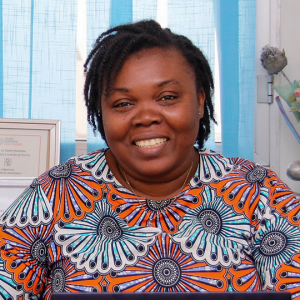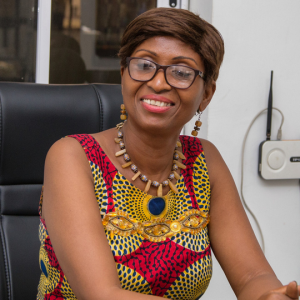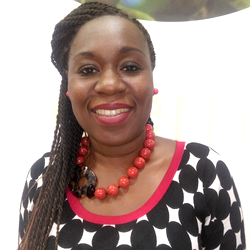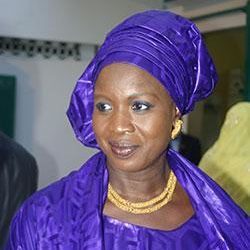In recent years, “acceleration” programs have proliferated on the African continent. What lies behind this trendy concept? What does an acceleration program bring to a company?
After having explored the different facets of acceleration programs currently deployed on the African continent in a first article (available here), we will focus here with a practical case study of a company benefiting from an acceleration program, with a joint-interview of Mohamed Diaby and Ybrahim Traoré, CEO and co-director, respectively, of Citrine.
Founded in 2014, Citrine Corporation is a company based in Grand-Bassam, southern Côte d’Ivoire, specializing in the production and marketing of Zatwa brand agricultural products in the sub-region, Europe and the United States.
Like many young African companies, Citrine has had great difficulty accessing “traditional” financing (bank loans, equity investments, etc.). However, since 2020, the company has benefited from the I&P Acceleration program in the Sahel (IPAS), which has provided financial resources (seed funding in the form of a repayable advance to meet operating expenses, pilot phases, market testing, research & development, equipment purchases), as well as technical support to strengthen the team’s skills in various areas.
What is your business plan ?
Mohamed Diaby : From the very beginning, our intention was to promote the local dishes and cultures from the southern region of Côte d’Ivoire, where we both come from.
Ybrahim Traoré : Our ambition was also to show young Africans that you don’t need to leave the country to succeed. Starting a business and creating jobs is a way to deal with the problem of clandestine migration, which is occurring in several African countries. This is why our business is not limited to import-export: we ensure not only the marketing phase but also the production phase of cereals, fruits and vegetables, such as placali and attiéké, which are produced in the Grand-Bassam region and widely consumed by Ivorians in Côte d’Ivoire and abroad. We have also created our own brand, Zatwa Impex.
How did you come up with this idea?
M. D. : We met at the university during our graduation cycle. To complete our degree, we needed to find a work-study program, but we chose to go directly into entrepreneurship.
We thus started this project based on the following observation: the entire distribution circuit of African products and foodstuffs (attiéké, smoked fish, etc.) was run by non-African communities. In France, for example, these grocery stores are owned by the Asian community. We thought this was a shame… and that’s how the journey started.
Y. T. : We didn’t intend to only produce and sell attiéké but also to guarantee the quality of the products put on the market. The company is doing well. When we started, we had about ten employees, 90% of whom were women. Today, we have about 60 permanent jobs and we employ up to 100 people during the production period.
Your company has been supported since 2020 by the I&P Acceleration in the Sahel program. What does this partnership bring you ?
M. D. : I would say many things! We had approached the Ivorian fund Comoé Capital a few years ago, but we were not quite ready yet. The opportunity for partnership arose thanks to the launch of the I&P Acceleration in the Sahel program, led by Investisseurs & Partenaires and financed by the European Union.
Today we owe a lot to the team that follows up and gives us very useful advice. I&P and Comoé Capital helped us to carry out our market study on cassava products (such as attiéké and placali mentioned previously) which allowed us to confirm their sales potential, in Côte d’Ivoire and with the African diaspora (from Congo, Niger, Ghana, Benin…), who also consume a lot of cassava. Then, the program allowed us to increase our production capacity with the help of production equipment (ovens, machines, packaging, a crusher, raw materials).
Y. T. : The program’s support also allows us to lighten the workload of our staff. Our employees work full time but produce much more. They can now produce two containers in a month, instead of one. The workload is less tiring but they earn a lot more because it gives us the opportunity to increase their wages. They rely heavily on us and on their job because it helps them support their family needs.
Thanks to the I&P Acceleration program, we have been able to expand our production capacity with a lighter, less tiring workload for our employees and a higher salary to boot.
What’s next ?
Y. T. : The program’s support will help us tackle environmental issues. For example, we are going to benefit from a technical assistance mission* for the recycling of waste. We will be able to recover and transform cassava skins and starch into bio-gas.
M. D. : In the medium term, we’d like to consolidate Citrine’s position on the local market. It is important for us to strengthen the sale of our products in markets and supermarkets and contribute to food security in Côte d’Ivoire.
L’appui du programme nous permet de nous attaquer aux questions environnementales. Nous bénéficions d’une mission d’assistance technique pour mesurer l’efficacité de toute notre chaîne de production.The program’s support allows us to address environmental issues. We have a technical assistance mission to measure the efficiency of our entire production chain.
Keywords
Acceleration: Mentoring, financing or networking services provided by private actors (investment funds, incubators, etc.) and financial backers to small businesses to support them in their start-up phase.
Seed: All the resources granted to a company to meet the expenses related to its start-up (working capital, operating expenses, research and development, purchase of equipment and technologies) and to prepare it for fund-raising.
Technical assistance: All non-financial resources granted to the managerial and/or operational teams of a company to strengthen their skills in several areas (strategy, financial and/or fiscal management, marketing, production, etc.). Generally, technical assistance takes the form of training (individual or collective) or support missions carried out by an expert
[1] I&P Acceleration in the Sahel, launched in 2020, is a program deployed by the Investisseurs & Partenaires group and funded by the European Union. The program targets 13 countries in the Sahel sub-region and provides start-ups with access to the financing and skills necessary to enable their development and thus promote the creation of decent jobs.
[2] HACCP (Hazard analysis Critical Control Point) is the main platform of international legislation concerning manufacturing for all actors of the food industry. The HACCP aims to validate the implementation of the food safety system.



